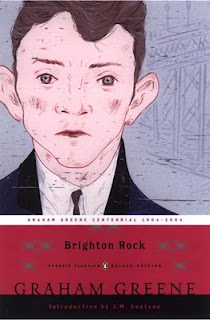 Home Land is narrated as a series of letters to a high school alumni newsletter by a graduate by the name of Teabag who explains in detail how success - financial, social, emotional - has eluded him since graduation. The letters are incredibly profane and so the principal of his high school, Mr. Fontana whose romantic and professional failures Teabag delights in publishing, refuses to include them in the Catamount Notes.
Home Land is narrated as a series of letters to a high school alumni newsletter by a graduate by the name of Teabag who explains in detail how success - financial, social, emotional - has eluded him since graduation. The letters are incredibly profane and so the principal of his high school, Mr. Fontana whose romantic and professional failures Teabag delights in publishing, refuses to include them in the Catamount Notes.an unbelievable amount of blood pouring off the poor guy's head. His shirt collar couldn't soak it up quite fast enough... [and he] walked around the bar like that for awhile, looking for all the world like a butchered zombie, or a man born old, full-sized, womb slime still on him.
Lipsyte's humor reminds me quite a lot of Chuck Palahniuk, who blurbs on the back of my paperback edition. The mixture of gleeful description of taboo subjects, wicked wit and droll observations of awkward interpersonal encounters read like caffeinated Bret Easton Ellis.
While Lipsyte delights in exploring the gutter of post-Sunday dinner America his vision is also strikingly warm. There is little question that Lipsyte is sympathetic to his hero or that we are meant to be as well. Teabag is portrayed as the only honest man in his community - the one who is quick to cut to the psychological bone of others' lives.
The supporting characters of Home Land delude themselves as to the quality of their lives - taking greater stock in their superficial jobs and families than they ought to. Teabag strips their underlying insecurities bare and makes the pretense of conventional post-graduate American suburban success the target of his letters. He is an avenger, of sorts. The naive (both met and unmet) aspirations of his classmates pale in comparison to Teabag's multitudinous existential crises (his unfulfilled love life, his embarrassing sexual fantasies, his stunted sense of professional self-worth).
Teabag's derision of and contempt for his fellow classmates is a familiar emotion; who amongst us has not rolled his eyes at the success of a former acquaintance? In this sense, his diatribes are rewarding reading - and Lipsyte's sense of the ridiculous and the profane both make the book somehow special.
But Teabag deludes himself as well. While Lipsyte clearly establishes Teabag as a character we are meant to admire for his forthrightness, he also mines our inevitable sense of superiority. For while we all are no strangers to Teabag's disgust for his conventional classmates, few of us are truly as aimless as Teabag is and he is simultaneously established as a truly pitiable character. Teabag, while disregarding the superficial pleasures of suburban complacency, is devoid of any human connection. He laments his mother's death and wallows in his unrequited love.
Teabag keeps his relationships at an arm's length and preempts any possibility to engage in the more rewarding aspects of even the most superficial relationships. Lipsyte establishes a false dichotomy of Teabag's superiority to his classmates. Ultimately, Lipsyte's book is populated simply with characters at different stages of self deception regarding their lives' worth.
While Teabag is more frank about his failures, his pride in this failure to self-delude leads to its own sense of delusion: that his self-knowledge is indicative of some kind of spiritual success which has eluded those around him. However false the confidence of Teabag's fellow graduates of Catamount High School is, however empty their complacency it is confidence, satisfaction nonetheless. Tragically, it is the very thing he condemns them for undeservedly enjoying - self-worth - that has eluded him.



